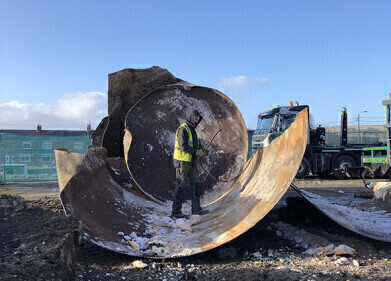Soil remediation
New research results in tighter control on risk assessment of waste sites
Mar 16 2009
New research released by Cranfield University in England will provide tighter risk assessment procedures for composting and organic waste treatment sites.
The research, which was funded by the Environment Agency (EA), addressed a number of issues common to waste processing operations including odour and bio-aerosols. The potential impact of these on communities and their quality of life was also assessed.
The research has resulted in new guidelines being drafted that will affect the way waste operators currently carry out risk assessments. Dr Kerry Walsh of the EA said: “While existing sites are unlikely to see changes, new sites, or operators who are changing operations should see a change in the risk assessment procedures they are required to undertake.”
Cranfield’s Dr Gill Drew, the principal author of the report, said: “The research undertaken over the last three years has considered a number of factors that could potentially have an environmental impact. The training provided to EA staff through this research will result in a more consistent approach to assessing these impacts at waste sites, which will benefit operators in the long term through time efficiencies.”
The results provide a scientific evidence-base to support the development of these impact assessments and will be used by the EA to underpin policy development and inform decision-making in waste management and monitoring.
Events
Mar 18 2025 Expo Santa Fe, Mexico
Mar 18 2025 Moscow, Russia
Mar 19 2025 Manila, Philippines
Mar 20 2025 Guangzhou, China
Mar 24 2025 National Harbour, MD, USA














